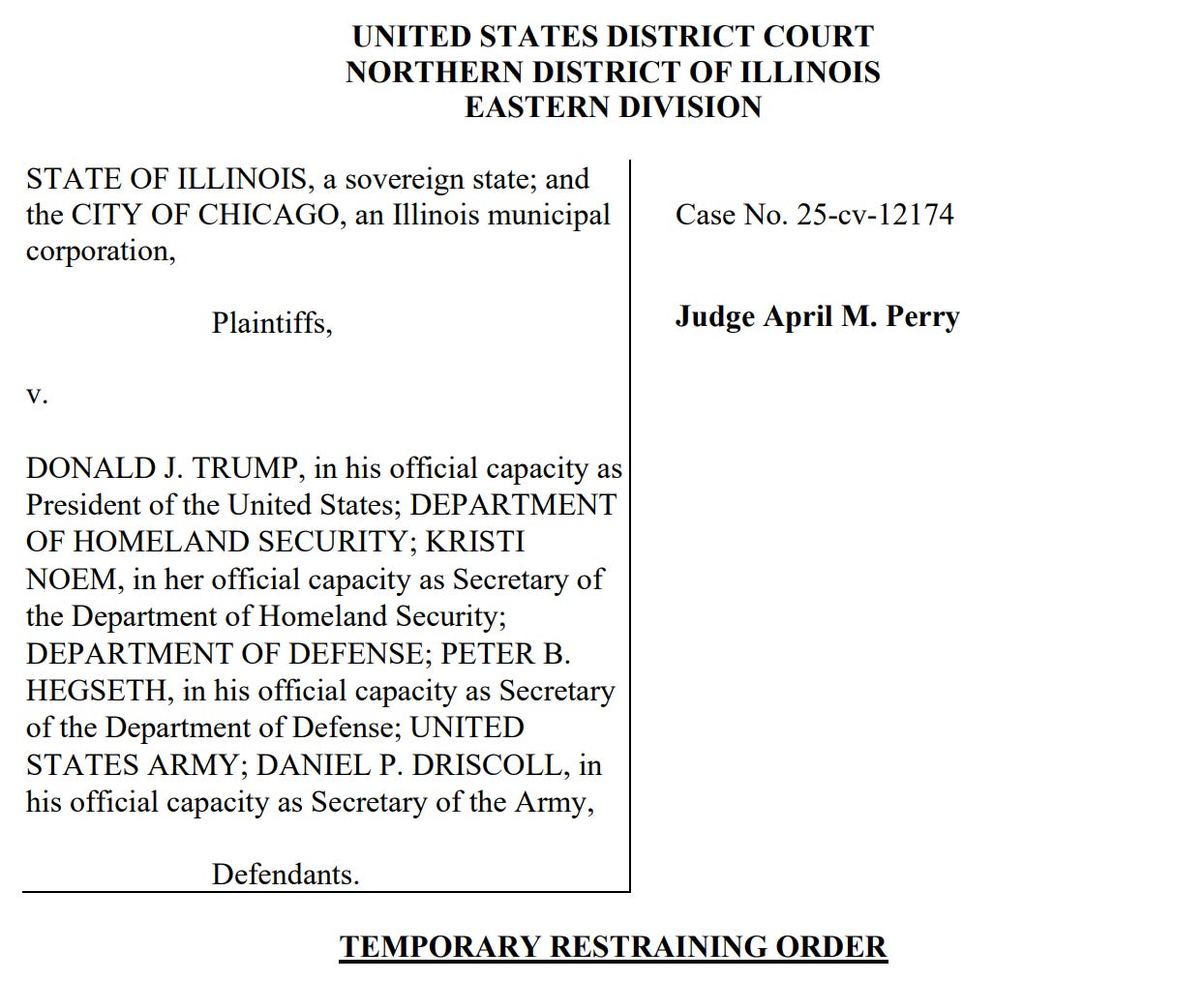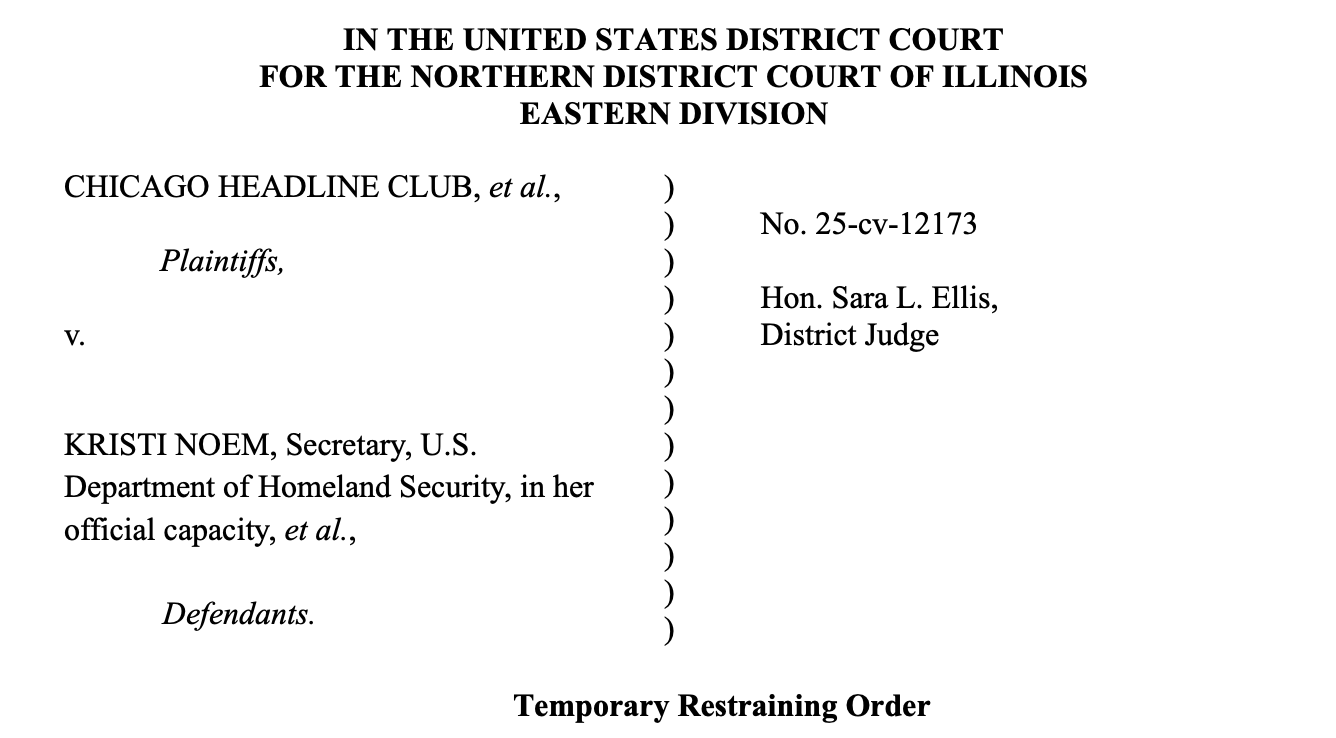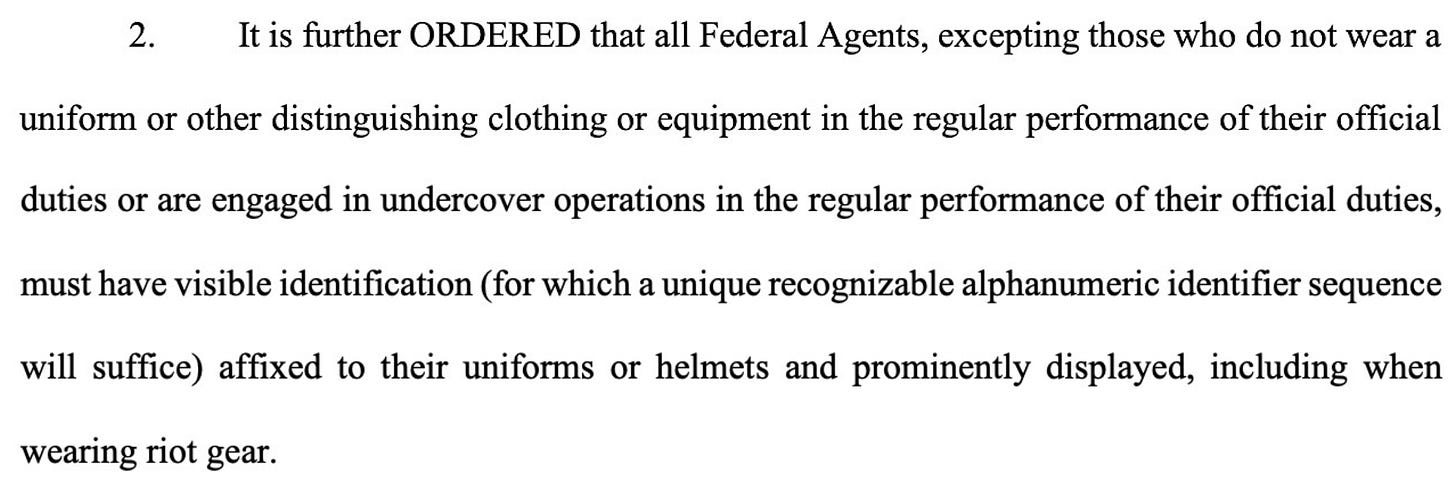The trials of litigating against Trump
As Trump troop deployments are blocked in Chicago, Trump appellate appointees push back on the order blocking deployments in Portland. And, another Trump target indicted.
The difficulties of litigating against President Donald Trump and his efforts to expand his powers and control — constitutional limits and statutory restrictions notwithstanding — were on full display Thursday.
The day began with one federal judge in Chicago issuing a temporary restraining order protecting ICE protesters and journalists covering those protests.
By the evening, a second federal judge in Chicago issued another temporary restraining order — this one blocking the Trump administration from federalizing and deploying National Guard to Illinois. (Before the end of the day Thursday, the Justice Department announced it was appealing the order to the U.S. Court of Appeals for the Seventh Circuit.)
That, however, came hours after two judges of a three-judge panel on the West Coast expressed skepticism over a similar order issued over the weekend as to the Oregon National Guard.
And, in the midst of it all, Letitia James — the New York Attorney General whose office has acted against Trump, the Trump Organization, and the Trump administration — was indicted by the Trump-picked lawyer who was recently installed in the prosecutor’s office that indicted James — and had indicted former FBI director James Comey two weeks ago. (Both were listed in Trump’s Truth social post about the office.)
“These charges are baseless,“ James said in a statement issued in response, “The president’s own public statements make clear that his only goal is political retribution at any cost.“
The Ninth Circuit arguments
Across the country, Judges Ryan Nelson and Bridget Bade of the U.S. Court of Appeals for the Ninth Circuit, both of whom were appointed to the appeals court by Trump in his first term, were focused more on what they saw as Trump’s powers as president — and not his flagrant abuses of those powers. The pair expressed varying levels of disagreement with U.S. District Judge Karin Immergut’s weekend opinion and order blocking the federalization of the Oregon National Guard.
The third judge on the panel considering the Trump administration’s request to stay the TRO pending appeal, Judge Susan Graber, asked the Justice Department’s Eric McArthur several questions echoing or buttressing Immergut’s order. The Clinton appointee, however, appeared to be outnumbered on Thursday.
Nelson fairly directly told Stacy Chaffin from the Oregon Department of Justice that he thought the district court had too narrowly interpreted the circumstances when federal law allows the president to federalize the National Guard. Bade, meanwhile, questioned why the district court didn’t consider disruptive protests that happened over the summer when determining whether Trump properly invoked the law at issue, 10 U.S.C. 12406.
When Chaffin noted that the law’s one provision would require a “current inability to execute” the laws, Nelson scoffed.
“I mean it just seems like such a tortured reading to the statute,” he said. “I mean, I’m not even sure President Lincoln would’ve been able to bring in forces when he did because he’d have to wait. If he didn’t do it right immediately after Fort Sumter, your argument would be, oh, things are okay right now.”
One procedural question raised by Graber could complicate matters. Given that DOJ only appealed Immergut’s October 4 TRO addressing the Oregon National Guard — and not her October 5 TRO blocking any National Guard deployment in. Oregon — Graber asked how DOJ could show that it faces harm if the October 4 order is not stayed. McArthur responded that if the first TRO was stayed, Immergut would presumptively stay or vacate the second TRO since it was based on the same reasoning as the first one. That isn’t procedurally how it works, however, and Graber is likely right in suggesting that DOJ should have appealed both TROs to the Ninth Circuit and sought stays of both pending appeal.
The Illinois TROs
The West Coast arguments stood in stark contrast to those two TROs issued in the federal courthouse in Chicago in the two cases filed on Monday.
U.S. District Judge Sara Ellis, an Obama appointee, issued a TRO in the case over the treatment of protesters outside the Broadview ICE facility outside Chicago and journalists covering those protests.
Among the provisions in the order, she addressed the anonymity of the federal agents at the facility — a concern she had opined on in court on Monday. Her order put the following restriction on agents in the Northern District of Illinois:
On Thursday evening, following a hearing earlier in the day, U.S. District Judge April Perry, a Biden appointee, issued an order blocking the Trump administration “from ordering the federalization and deployment of the National Guard of the United States within Illinois” through the end of October 23.
Perry said her decision came down to a “credibility determination,” as Chicago Sun-Times reporter Jon Seidel noted. “I simply cannot credit [the Trump administration’s] declarations to the extent they contradict state and local law enforcement. … DHS’[s] perception of events are simply unreliable.”
For Nelson at the Ninth Circuit, though, it was that very act that prompted a stark query to Chaffin. Noting that the law in question can be invoked when “the president can’t execute the laws,” he asked her “why we’re giving district courts the ability” to look into that determination based on “what [they] see on the outside.”
As Chaffin noted in response, the Ninth Circuit has already said that courts have “a role in evaluating the president’s determinations.”
That is a key question for the judiciary now, not only as to Trump’s efforts to deploy troops across American cities, though certainly as to that. Day to day, case to case, and judge to judge, the answer to that question of what “evaluating the president’s determinations” looks like is one of courts’ most pivotal decisions in this moment.






Is this normal? That appeals courts - and SCOTUS - are more concerned with rules and procedure than effects and behavior? That it’s all about the presidency … but not about the president? Does that excuse their (and his) shamelessness?
So crazy to me, it’s like the appeals court is like saying the judge can’t make a determination based on reality.